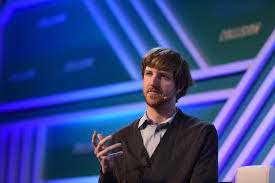The founder of a startup that assists the cars to drive themselves just became a billionaire and he is just 25 years old. Luminar Technologies CEO Austin Russell made sure of a hefty fortune after his company's debut in the stock market, as per reports. The Florida-based company that he founded when he was 17 years old makes the so-called lidar scanners, which use lasers for giving the autonomous cars a three-dimensional view of the road and what is around them.
The share price of Luminar increased by nearly 28 percent on the Thursday debut to close at $22.98, giving the company a market value of worth around $7.8 billion, as reported by the Wall Street Journal. Russel's stake of 104.7 million shares was made worth $2.4 billion, as per Forbes. His wealth increased even higher on Friday as Luminar's shares climbed almost 37 percent to $31.40, which left Russell with a net worth of around $3.3 billion.
Billionaire at 25

"It is totally surreal and it totally makes sense and it is hard to explain the dichotomy of it, but this has always been the goal. We set up the company to be a long-term sustainable business and power the future of autonomy for all of these automakers," Russell told CNBC.
He is one of the first billionaires to emerge from the self-driven vehicle market. He got out of Stanford University as a teenager in 2012 for starting Luminar with the help of a fellowship sponsored by Peter Thiel. Under the leadership of Russell, Luminar inked a deal for supplying lidar units for Volvo vehicles and secured partnerships with Daimler Truck and Mobileye.
The firm has projected long-term annual revenues in billions of dollars, but it posted almost a $95 million net loss last year on just around $13 million in revenue. The financial growth reportedly depends on turning the research partnerships into production deals. "Now it's all about scale, execution, and seeing it through," Russell told Reuters.








